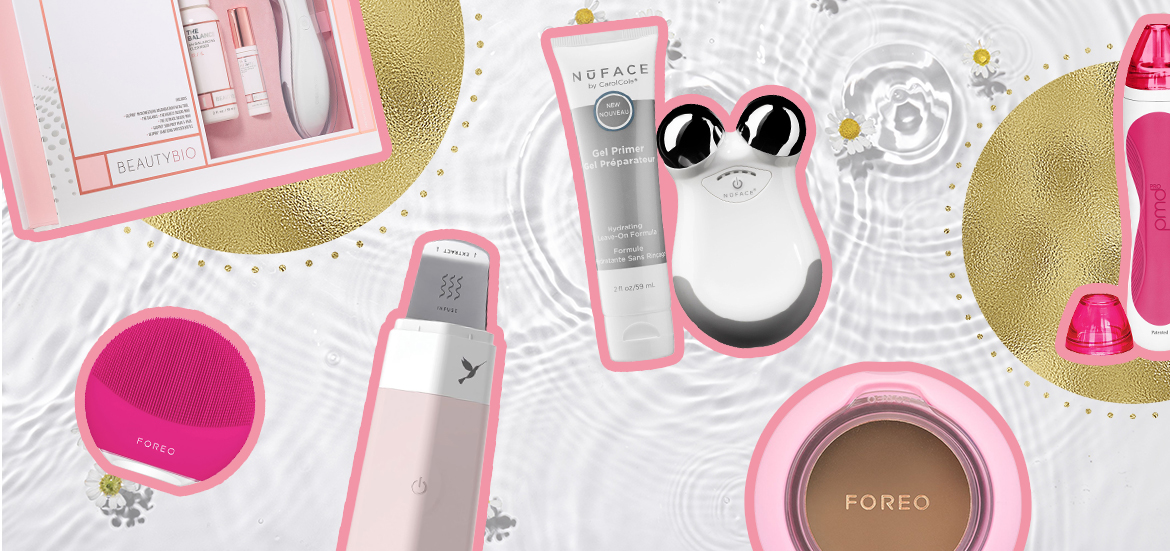
Can Eating a Healthy Diet
Slow Skin Aging?
Diet, Aging, and Antioxidants
As mentioned, oxidative stress is damaging to the skin. It's hard to protect completely against the damage that free radicals produced from oxidative stress does to collagen and elastin. Even air pollution, something most people are exposed to, causes oxidative stress. However, some foods are an abundant source of antioxidants, compounds that fight oxidative damage. These foods include fruits, vegetables, nuts, and spices. Eating a produce-rich diet and adding spices such as turmeric, rosemary, garlic, and ginger, known for their antioxidant properties, helps your body better subdue the flames of oxidative stress. In turn, this may slow skin aging. Some skin care creams contain antioxidants, but getting antioxidants internally may offer additional anti-aging benefits.
Foods rich in vitamin C have antioxidant benefits, but vitamin C is also essential for building new collagen, one of the two proteins that give skin its support and resistance to wrinkling. Citrus fruits are a good source of vitamin C, but strawberries are even better. Some vegetables contain substantial quantities of vitamin C too, but cooking can destroy up to 40% of the vitamin C in fresh produce. So, eating more raw fruits and vegetables may be more beneficial than consuming only cooked ones.
The recommendation to eat the rainbow applies to skin aging too. Each color of produce contains specific phytonutrients, some of which have antioxidant properties. For example, orange fruits and vegetables contain beta-carotene, an antioxidant that's a precursor to vitamin A, another vitamin important for skin health. Good sources include carrots, sweet potatoes, squash, cantaloupe, and red bell peppers. In fact, vitamin A derivatives are used topically in retinoid and retinol creams. Retinoids are clinically proven to stimulate collagen and elastin production and improve the appearance of fine lines and wrinkles.
In the same family as beta-carotene is lycopene, abundant in tomato products. What makes it special? Lycopene blocks some of the sun's harmful rays. In fact, one study found that lycopene has the sun-blocking equivalent of a sunscreen with an SPF (sun protective factor) of 1.3. Don't skip the sunscreen, but add more lycopene to your diet for an extra layer of protection. Your body can't absorb the lycopene from raw tomatoes as well as it can processed or cooked tomatoes. So, ketchup, marinara sauce, stewed tomatoes, tomato juice, and salsa are better sources than raw tomatoes.
Inflammation as a Contributor to Skin Aging
Inflammation can also damage collagen and elastin, the proteins that help your skin stay youthful. Foods rich in omega-3s have anti-inflammatory properties, and that's beneficial for the health of your skin. Omega-3s come in two varieties: short-chain and long-chain. The long-chain version is in fatty fish, like wild-caught salmon and sardines while short-chain sources include plant-based sources like walnuts, sesame seeds, chia seeds, and flaxseed. Long-chain omega-3s have been the focus of a lot of research, but short-chain have not. However, it looks like both have anti-inflammatory benefits. In fact, a study of 4,000 women found that those who consumed more of a short-chain omega-3 called linoleic acid experienced less age-related skin thinning. So, consuming more of these foods may help keep those wrinkles from deepening.
Also, nix ultra-processed foods and sugar. Both cause spikes in blood sugar that can lead to insulin resistance and increased inflammation. Plus, high blood glucose levels in the blood can form protein-sugar complexes called advanced glycation end products (AGEs) that damage collagen and elastin.


